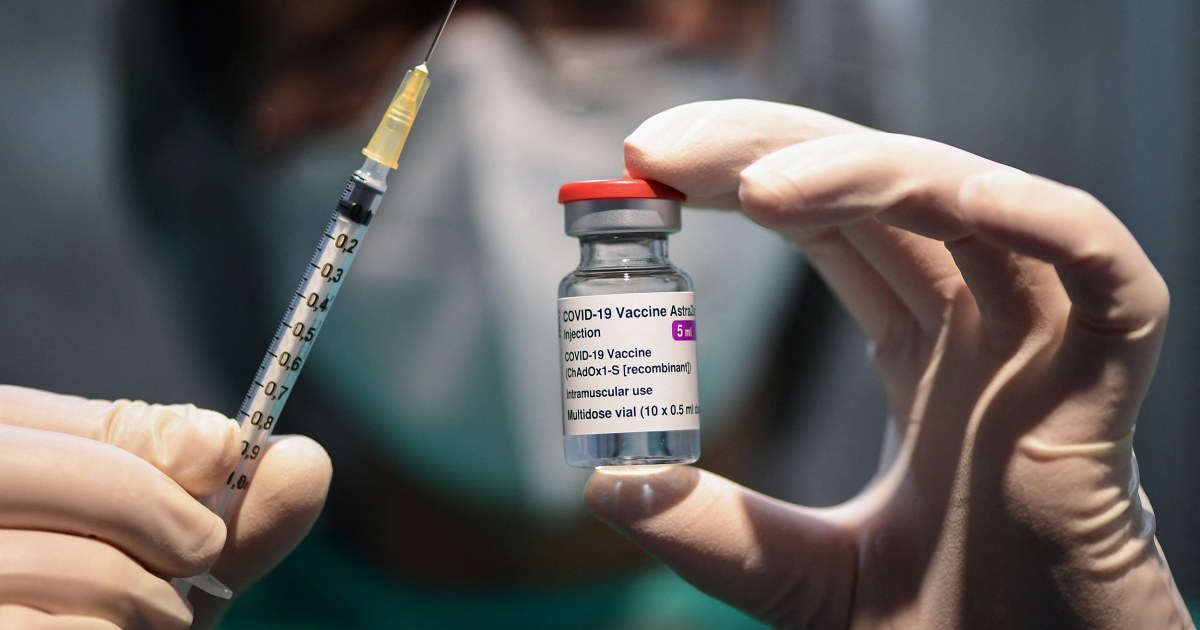LONDON – Several European countries have halted the launch of the world’s leading Oxford-AstraZenaca Covid-19 vaccine this week due to reports that some patients have suffered blood clots.
However, say some experts and regulators, these decisions were not only based on poorly understood evidence, but also heightened anxiety in one of the parts of the world that most hesitate to vaccinate.
“We need to be ultra-cautious – but now that’s being overly cautious,” said Mukesh Kapila, a former adviser to the director general of the World Health Organization, who has held senior positions at a number of other United Nations agencies.
“We have real-world information on tens of millions of vaccinated patients and, if this were a serious problem, it would have arisen,” added Kapila, now an emeritus professor of global health and humanitarian affairs at the University of Manchester, UK.
On Thursday, Denmark announced it was halting the launch of the vaccine developed by the University of Oxford and the Swedish-British pharmaceutical giant AstraZeneca. This came after reports of dozens of people with blood clots after receiving the vaccines, including at least one person who died in the Nordic country.
Norway, Bulgaria and Iceland followed suit, while other countries, including Estonia, Lithuania, Luxembourg, Latvia, Italy and Austria, suspended specific batches that they said could be associated with the diseases.
These countries emphasized that no link had been confirmed and that the move was a temporary measure until more evidence could be gathered. Denmark said it was using the “precautionary principle” – the idea that until you have more evidence, prevention is better than cure.
Download the NBC News app for complete coverage of the coronavirus outbreak
However, some experts say, this appears to be a classic case of confusion between causation and correlation: just because someone fell ill after being vaccinated, it doesn’t mean that the vaccine caused it, they say.
The European Medicines Agency, the continent’s top drug regulator, said that by Thursday, 30 blood clots had been reported in 5 million vaccinated patients – roughly the same number as would be expected in the unvaccinated population.
Britain, which vaccinated more than 20 million people, most of them with the AstraZeneca vaccine, said the same. Both the European Medicines Agency and the WHO have said they will investigate the cases, but stressed that for them this vaccine is safe and effective.
AstraZeneca said in an email statement that its own data from more than 10 million patient records showed that the incidence of blood clots was actually less than the rate in the general population.
Europe is the continent that most hesitates about vaccines in the world, according to a survey by the British charity The Wellcome Trust. In particular, AstraZeneca suffered a public relations blow after several European regulators and leaders, including French President Emmanuel Macron, suggested that there was insufficient data to prove its effectiveness in people over 65.
Evidence from the real world suggests that this is not true, but the damage to public trust has already been done. At one point last month, there were millions of unused AstraZeneca vaccines in countries like Germany and France, in part because people were reluctant to take them, according to authorities.
German Health Minister Jens Spahn said on Friday that he “regrets” seeing neighboring Denmark suspend vaccines, despite what he described as a lack of evidence.
The United States has pledged about $ 1.2 billion for the development of the AstraZeneca vaccine and has ordered 300 million doses. But it has not yet been approved in the United States amid doubts about the transparency of data from the initial phase 3 trial and a delay in the study being conducted in the United States.
At the heart of this debate is the delicate balance that needs to be achieved by public health officials and governments: vigilance against any possible side effects, transparency to maintain public trust, but also not giving credence to unstable claims that can unduly damage the faith on them. vaccines.
“It is a bit of a complicated issue because there is also a danger of minimizing these concerns,” according to Hajo Zeeb, a professor at the Leibniz Institute for Prevention and Epidemiology Research in Germany. “Do you say that you are taking the side of caution or say, ‘No, we are not seeing anything out of the ordinary’ and continue to vaccinate as if we were in Germany?”
One such debate broke out in the UK in 2009, after a 14-year-old student died hours after receiving a vaccine against human papillomavirus, also known as HPV, which can cause cancer.
David Salisbury, the British government’s director of immunization at the time, said they decided to remove that batch of vaccine, but never interrupted the vaccination campaign.
Crucially, he said, his team refused to make any comment to the media until the cause of death was known, which the next day was a malignant tumor not related to the gunshot.
“The story got out of the news very quickly after that,” Salisbury told NBC News on Friday. Now, he fears that interrupting the injection of AstraZeneca based on fuzzy evidence means that “the story will spread and, of course, it will not help” to overcome the hesitation of the vaccine.

